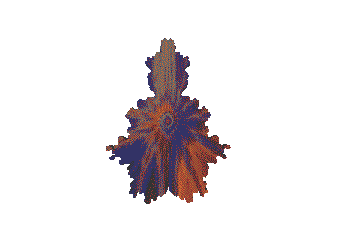> * quotes quintessences from : The Crux of Rimbaud's Poetics : by Eric Mader-Lin [A version of this essay was published in the Spring 1996 edition of the New Review of European Letters.
Arthur Rimbaud [age 16] presented his poetic theory to his teacher and friend [George Izambard May 13, 1871 and Paul Demeny May 15, 1871] in the now famous Les Lettres du Voyant [Letters of the Seer] : Les Lettres du Voyant (Letters of the Seer)- a summarisation of KEY ASPECTS For I is another. If brass wakes up a bugle, it is not its own doing. This is clear to me : I'm a witness at the flowering of my own thought. I watch it and listen to it. I draw a stroke of the bow, and the symphony makes its stir in the depths, or comes upon the stage in a leap. I say it is necessary to be a voyant, make oneself a voyant. The Poet makes himself a voyant by a long, immense and rational derangement of all the senses. All the forms of love, suffering, and madness. He searches himself. He exhausts all poisons in himself and keeps only their quintessences. He is responsible for humanity, for animals even. He will have to make his inventions smelt, touched, and heard. A language must be found. Moreover, every word [utterance] being an idea, the time of a Universal Language will come !
We have encountered it so many times we finally become indifferent to the meaning of its formulae. The first thing we always remark upon reading over these lines is that the process of Rimbaud's poetics is quite explicit. One could easily become a disciple of Rimbaud by taking up this project, step by step. The very explicitness of his formulae has perhaps rendered his poetics somewhat opaque. What is not explicit, are the implications of this project.
He made the spiritual struggle of Europe his own, and he re-wrote that struggle according to his own grandiose perseption of his calling and his powers. In his works we sense something essential, something not explained by mere virtuosity (the poetic quality). What can this something be ? Rimbaud began a project that remains unfinished. What is the purpose of the Universal Language ? For if it is not expected to transform the world immediately as would a magical formula, how is it to transform the world ?
1) Rimbaud believes language is capable of seizing the quintessences of 2) This is a potential in language that needs to be tapped. 3) The voyant is the only one capable of tapping this potential. 4) To tap this potential in language, is to approach creating the Universal Language. 5) The Universal Language is capable of transforming the world. 6) The Universal Language is already somehow latent in language as POTENTIAL. 7) The voyant, as expeditor of the Universal Language, is a divine being. It is not, as it stands, a necessarily magical philosophy of language, though it does owe much to an occult philosophy of language. His idea of the power in language was not founded on the supposition of something precious that had been lost, but rather on the supposition of things that were there to be found or created. These things to be found or created would give the voyant the power to transform the world.
Whence came to the poet the quintessences that would give him his due powers ? Was he a creator, or, rather, a receiver of gifts from some Other ? Rimbaud tells us that "if brass wakes up a bugle, that is non of its doing". And yet, is it not the willful activity of the would be voyant that fashions this bugle? How then does the brass "wake up" a bugle ? Who, or what had been at work while it slept ? Rimbaud uses the metaphor of the bugle to explain being "born a poet", and that in fact he is not speaking of waking up a voyant.
THE POET IS BORN, THE VOYANT IS SELF CREATED
This much seems clear. And yet Rimbaud's metaphor of the bugle is characteristic in that it plays the powers of an Other against the power of the self that is "created". "The I is another", writes a self-realised Rimbaud.
|
